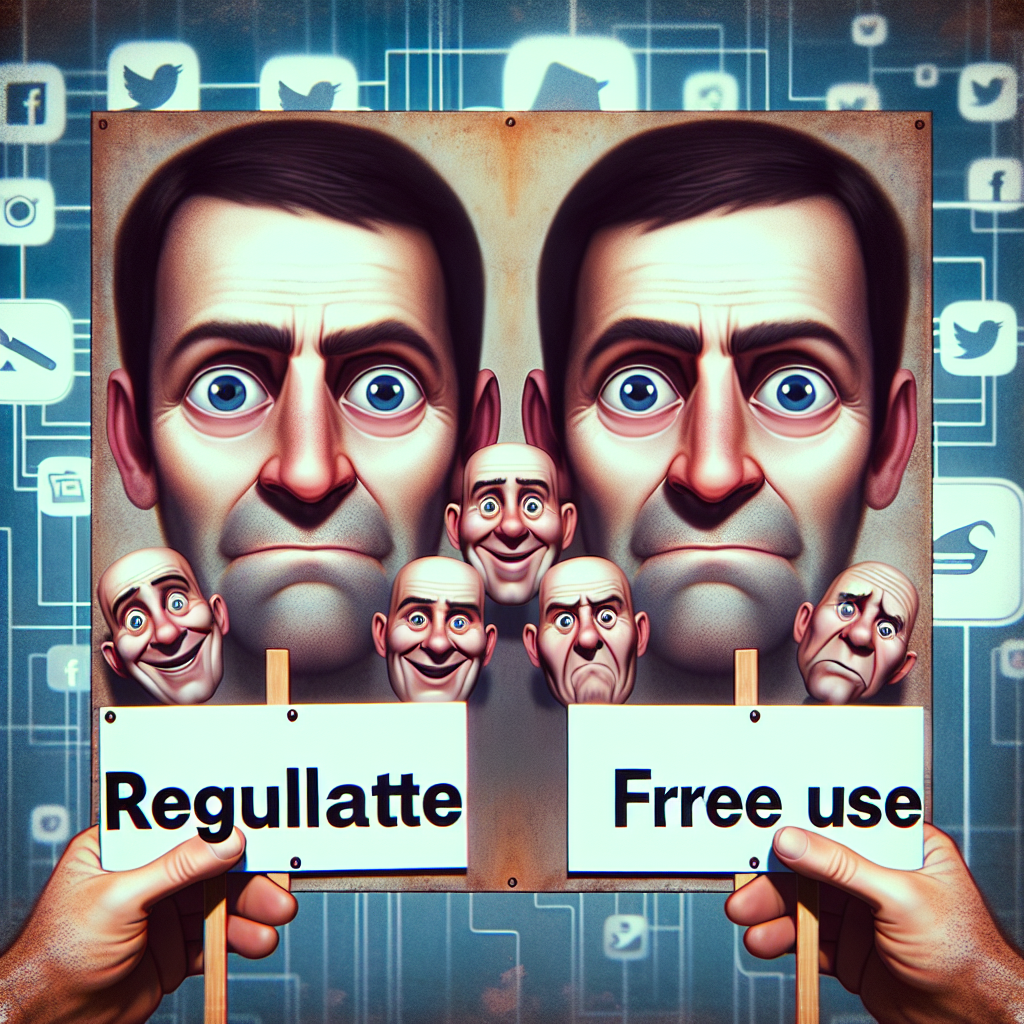Have you ever scrolled through your favorite social media platform and come across a photo of a friend or celebrity with a cartoon face filter? These fun and playful filters have taken the internet by storm, allowing users to transform themselves into cute animals, humorous characters, or even popular animated figures. While these filters may seem harmless and entertaining, there is a growing ethical debate on whether social media platforms should regulate their use. Let’s dive into this controversial topic and explore both sides of the argument.
The Rise of Cartoon Face Filters
In recent years, cartoon face filters have become increasingly popular on social media platforms like Instagram, Snapchat, and TikTok. These filters use augmented reality technology to overlay animated features onto a user’s face, creating a whimsical and lighthearted effect. From puppy ears and rainbow vomit to exaggerated facial expressions and sparkly eyes, the possibilities are endless when it comes to transforming oneself into a cartoon character.
While these filters are meant to be fun and entertaining, they have also sparked discussions about their impact on self-image, identity, and societal norms. Some argue that these filters promote unrealistic beauty standards and perpetuate a culture of digital enhancement, leading to a distorted sense of self and a lack of authenticity in online interactions.
The Ethical Concerns
One of the main ethical concerns surrounding cartoon face filters is their potential to alter perceptions of beauty and identity. By digitally modifying their appearance, users may feel pressure to conform to unattainable standards of beauty and perfection. This can have a negative impact on self-esteem, mental health, and body image, especially among impressionable young audiences.
Moreover, cartoon face filters can blur the line between reality and fantasy, making it difficult to distinguish between authentic and fabricated content online. This raises questions about the authenticity of social media interactions and the influence of digitally altered images on our perceptions of self and others.
The Argument for Regulation
Proponents of regulating cartoon face filters argue that social media platforms have a responsibility to protect users from harmful content and promote transparency and authenticity online. By implementing guidelines and restrictions on the use of these filters, platforms can mitigate the negative effects of unrealistic beauty standards and encourage genuine self-expression.
Regulation can also help prevent the spread of deceptive or misleading content that may be created using cartoon face filters. With the rise of deepfake technology and digital manipulation, there is a growing need to ensure that online content is accurate, truthful, and respectful of individuals’ rights and privacy.
The Case Against Regulation
On the other hand, opponents of regulating cartoon face filters argue that doing so would stifle creativity, self-expression, and innovation on social media platforms. These filters are a form of artistic expression and allow users to explore different identities, personas, and emotions in a playful and imaginative way.
Furthermore, regulating cartoon face filters may infringe on users’ freedom of speech and creativity, limiting their ability to express themselves authentically and creatively online. By imposing strict guidelines and restrictions, social media platforms risk alienating users and stifling the vibrant and diverse community that thrives on these platforms.
The Way Forward
As the debate over regulating cartoon face filters continues, it is important for social media platforms, policymakers, and users to engage in open and constructive dialogue on the ethical implications of these filters. While there are valid arguments on both sides of the debate, finding a balance between promoting creativity and authenticity while ensuring user safety and wellbeing is crucial.
Ultimately, the decision to regulate cartoon face filters should be guided by ethical considerations, user feedback, and industry best practices. By working together to address the ethical concerns surrounding these filters, we can create a safer, more inclusive, and more authentic online environment for everyone.
FAQs
Q: Are cartoon face filters harmful?
A: While cartoon face filters can be fun and entertaining, they have the potential to promote unrealistic beauty standards and blur the line between reality and fantasy. It is important to use these filters responsibly and be mindful of their impact on self-image and identity.
Q: Should social media platforms regulate cartoon face filters?
A: The decision to regulate cartoon face filters is a complex and nuanced issue. While regulation may help protect users from harmful content and promote authenticity online, it may also limit creativity, self-expression, and innovation on social media platforms. It is important for platforms to strike a balance between these competing interests.
Q: How can users navigate the ethical concerns surrounding cartoon face filters?
A: Users can navigate the ethical concerns surrounding cartoon face filters by being mindful of their use and impact on self-image and identity. It is important to use these filters responsibly, critically engage with online content, and promote authenticity and transparency in online interactions.








+ There are no comments
Add yours